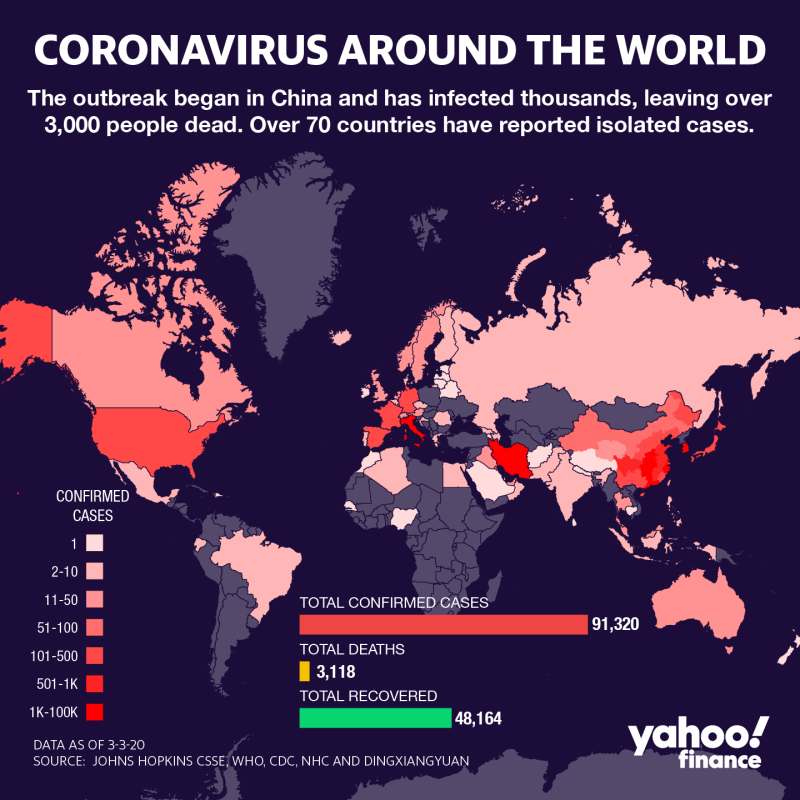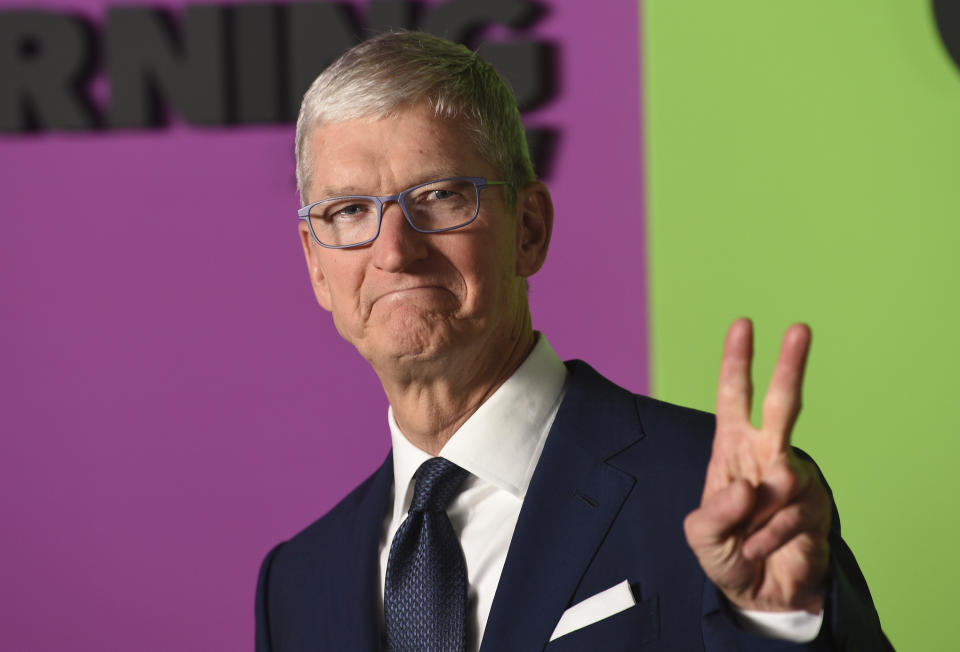Apple could still see historic iPhone sales despite the coronavirus
The global coronavirus outbreak continues to send markets on a rollercoaster ride, and on Tuesday concerns over the virus pushed the Fed to cut rates ahead of its planned March meeting. But as supply chain disruptions and consumer spending have whipsawed stocks, Apple (AAPL), one of the world’s most valuable tech firms, could still see historic sales of its iPhone in the next fiscal year.
According to at least one prominent Wall Street analyst, Apple’s robust ecosystem of devices and services, coupled with demand for 5G-capable iPhones, could see the company sell more than 231 million phones in 2021, beating the previous record of 231 million set in 2015.
“To this point, taking a step back while the last few weeks has been an exogenous ‘shock event’ to Apple's ecosystem on both the supply and demand side due to its China exposure, we believe this will be short lived as the longer term 5G super cycle thesis and services re-rating remain the crux of our bull thesis on Apple for the next 12 to 18 months,” Wedbush analyst Dan Ives wrote in a note on Tuesday.
Factories are coming back online
Apple, like many consumer goods companies, was hit particularly hard by the coronavirus outbreak in China thanks in equal parts to its massive reliance on the country’s manufacturing capabilities to drive its supply chain, and its enormous customer base in the country.

Foxconn, which produces the majority of Apple’s iPhones in China, was forced to idle its factories amid the Chinese government’s order to extend the Lunar New Year in February and mass quarantining of millions in the Wuhan region.
Apple CEO Tim Cook told Fox Business during a Feb. 27 interview that the company’s manufacturing partners are continuing to ramp up their production capabilities, which will help Apple build out its inventory of devices.
China is also Apple’s third largest revenue generator by region behind Europe and the U.S., earning the company $13.58 billion of its total $91.81 billion revenue in Q1 2020. During the height of the outbreak, the company closed its stores across mainland China, significantly limiting sales in the country.
As a result, on Feb. 17, Apple sent a letter to investors saying the company would miss its Q2 revenue guidance, and chose not to set a new guidance range. Cook also hasn’t said whether he believes the damage to Apple’s bottom line will be limited to Q2, or if it will bleed into Q3.
The iPhone 12 is coming

Despite the potential impact of the coronavirus on Apple’s Q2 and Q3, Ives says the company will be fine in the long run, especially as the iPhone 12 hits the market in September and October.
“While the supply chain issues and China demand shift are near-term fundamental headwinds, our primary focus is that the first part of this massive upgrade opportunity on the horizon with 5G leading the way should still be in the 215 million to 220 million unit range looking out to FY21,” Ives wrote in his note. In an upside scenario, Ives wrote, the company could ship 231 million phones in 2021, which would be a record for Apple.
Andrew Uerkwitz at Oppenheimer has a similar outlook for Apple, saying the company’s install base and its ability to keep users tied to its ecosystem via its services and accessories, ensures the coronavirus will prove to be a limited event and not lead to a larger systemic issue for Apple.
“Our limited checks indicate Apple will prove more resilient than others as firms worldwide navigate changing supply chains and customer demand uncertainty,” Uerkwitz wrote in an analyst note. “We expect demand to return to normal for the next iPhone launch and its accessories to drive an ever expanding installed base — ultimately building an ecosystem with stronger resistance to competition.”
There are currently more than 1 billion active Apple devices in consumers’ hands, with many of those consumers also connected to the company’s various services including Apple Care, iCloud, Apple Music, iTunes, and more.
Locking users into its ecosystem is one of the things Apple does best. That’s important because it means that if new iPhones are in short supply through Q2 and Q3, Apple fans are unlikely to ditch the brand for competing devices from the likes of Samsung or, in China, Huawei.
The most important thing for Apple is to ensure that even if iPhone 11 falls, it is able to make as many of its next-generation iPhones available to consumers as possible.
The shift to 5G connectivity is sure to be a driver for the iPhone 12, and pent-up demand could make the phone an absolute killer.
Now we just have to wait and see how Apple responds.
More from Dan:
Samsung Galaxy S20 review: A $1,399 smartphone with a massive camera
‘We’ll have the first global cyber warfare this year’: Nouriel Roubini
Apple CEO: We’re willing to sacrifice return on investment for customer satisfaction
Got a tip? Email Daniel Howley at [email protected] or [email protected], and follow him on Twitter at @DanielHowley.
Follow Yahoo Finance on Twitter, Facebook, Instagram, Flipboard, SmartNews, LinkedIn, YouTube, and reddit.
